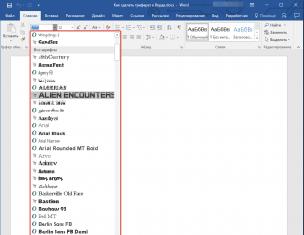Complete overview of the . Free in-depth and practical information on the 16 personality types , including careers, relationships, and core values. Enjoy and share with your friends!
What’s your personality type? Take our free personality test ->
The Counselor – INFJ Personality
INFJs are visionaries and idealists who ooze creative imagination and brilliant ideas. They have a different, and usually more profound, way of looking at the world. They have a substance and depth in the way they think, never taking anything at surface level or accepting things the way they are. Others may sometimes perceive them as weird or amusing because of their different outlook on life.
The Mastermind – INTJ Personality
INTJs, as introverts, are quiet, reserved, and comfortable being alone. They are usually self-sufficient and would rather work alone than in a group. Socializing drains an introvert’s energy, causing them to need to recharge. INTJs are interested in ideas and theories. When observing the world they are always questioning why things happen the way they do. They excel at developing plans and strategies, and don’t like uncertainty.
The Giver – ENFJ Personality
ENFJs are people-focused individuals. They are extroverted, idealistic, charismatic, outspoken, highly principled and ethical, and usually know how to connect with others no matter their background or personality. Mainly relying on intuition and feelings, they tend to live in their imagination rather than in the real world. Instead of focusing on living in the “now” and what is currently happening, ENFJs tend to concentrate on the abstract and what could possibly happen in the future.

The Craftsman – ISTP Personality
ISTPs are mysterious people who are usually very rational and logical, but also quite spontaneous and enthusiastic. Their personality traits are less easily recognizable than those of other types, and even people who know them well can’t always anticipate their reactions. Deep down, ISTPs are spontaneous, unpredictable individuals, but they hide those traits from the outside world, often very successfully.
The Provider – ESFJ Personality
ESFJs are the stereotypical extroverts. They are social butterflies, and their need to interact with others and make people happy usually ends up making them popular. The ESFJ usually tends to be the cheerleader or sports hero in high school and college. Later on in life, they continue to revel in the spotlight, and are primarily focused on organizing social events for their families, friends and communities. ESFJ is a common personality type and one that is liked by many people.
The Idealist – INFP Personality
INFPs, like most introverts, are quiet and reserved. They prefer not to talk about themselves, especially in the first encounter with a new person. They like spending time alone in quiet places where they can make sense of what is happening around them. They love analyzing signs and symbols, and consider them to be metaphors that have deeper meanings related to life. They are lost in their imagination and daydreams, always drowned in the depth of their thoughts, fantasies, and ideas.
The Performer – ESFP Personality
ESFPs have an Extraverted, Observant, Feeling and Perceiving personality, and are commonly seen as Entertainers. Born to be in front of others and to capture the stage, ESFPs love the spotlight. ESFPs are thoughtful explorers who love learning and sharing what they learn with others. ESFPs are “people people” with strong interpersonal skills. They are lively and fun, and enjoy being the center of attention. They are warm, generous, and friendly, sympathetic and concerned for other people’s well-being.
The Champion – ENFP Personality
ENFPs have an Extraverted, Intuitive, Feeling and Perceiving personality. This personality type is highly individualistic and Champions strive toward creating their own methods, looks, actions, habits, and ideas - they do not like cookie cutter people and hate when they are forced to live inside a box. They like to be around other people and have a strong intuitive nature when it comes to themselves and others. They operate from their feelings most of the time, and they are highly perceptive and thoughtful.
The Doer – ESTP Personality
ESTPs have an Extraverted, Sensing, Thinking, and Perceptive personality. ESTPs are governed by the need for social interaction, feelings and emotions, logical processes and reasoning, along with a need for freedom. Theory and abstracts don’t keep ESTP’s interested for long. ESTPs leap before they look, fixing their mistakes as they go, rather than sitting idle or preparing contingency plans.
The Supervisor – ESTJ Personality
ESTJs are organized, honest, dedicated, dignified, traditional, and are great believers of doing what they believe is right and socially acceptable. Though the paths towards “good” and “right” are difficult, they are glad to take their place as the leaders of the pack. They are the epitome of good citizenry. People look to ESTJs for guidance and counsel, and ESTJs are always happy that they are approached for help.
The Commander – ENTJ Personality
An ENTJ’s primary mode of living focuses on external aspects and all things are dealt with rationally and logically. Their secondary mode of operation is internal, where intuition and reasoning take effect. ENTJs are natural born leaders among the 16 personality types and like being in charge. They live in a world of possibilities and they often see challenges and obstacles as great opportunities to push themselves. They seem to have a natural gift for leadership, making decisions, and considering options and ideas quickly yet carefully. They are “take charge” people who do not like to sit still.
The Thinker – INTP Personality
INTPs are well known for their brilliant theories and unrelenting logic, which makes sense since they are arguably the most logical minded of all the personality types. They love patterns, have a keen eye for picking up on discrepancies, and a good ability to read people, making it a bad idea to lie to an INTP. People of this personality type aren’t interested in practical, day-to-day activities and maintenance, but when they find an environment where their creative genius and potential can be expressed, there is no limit to the time and energy INTPs will expend in developing an insightful and unbiased solution.
The Nurturer – ISFJ Personality
ISFJs are philanthropists and they are always ready to give back and return generosity with even more generosity. The people and things they believe in will be upheld and supported with enthusiasm and unselfishness. ISFJs are warm and kind-hearted. They value harmony and cooperation, and are likely to be very sensitive to other people’s feelings. People value the ISFJ for their consideration and awareness, and their ability to bring out the best in others.
The Visionary – ENTP Personality
Those with the ENTP personality are some of the rarest in the world, which is completely understandable. Although they are extroverts, they don’t enjoy small talk and may not thrive in many social situations, especially those that involve people who are too different from the ENTP. ENTPs are intelligent and knowledgeable need to be constantly mentally stimulated. They have the ability to discuss theories and facts in extensive detail. They are logical, rational, and objective in their approach to information and arguments.
 The Composer – ISFP Personality
The Composer – ISFP Personality
ISFPs are introverts that do not seem like introverts. It is because even if they have difficulties connecting to other people at first, they become warm, approachable, and friendly eventually. They are fun to be with and very spontaneous, which makes them the perfect friend to tag along in whatever activity, regardless if planned or unplanned. ISFPs want to live their life to the fullest and embrace the present, so they make sure they are always out to explore new things and discover new experiences. It is in experience that they find wisdom, so they do see more value in meeting new people than other introverts.
Everyone wants to learn about themselves. Our TypeExplorer personality test shows you what it means to be you . The TypeExplorer assessment is based on the 16 personality types that were developed by Isabel Briggs Myers and Katharine Cook Briggs , which was built on the work of Carl Jung in the early 1900s.
The 16 personality types were created by Isabel Myers and Katharine Briggs as a way to categorize an individual according to their preferred way of thinking and behaving. Each personality type is designated with a four-letter code, like INFP or ESTJ, which is an acronym for the four key dimensions of personality.
To learn more about a particular type, click on one of the icons below. Or, you can read more about .
What is personality typing?
Personality typing is a system of categorizing people according to their tendencies to think and act in particular ways. Personality typing attempts to find the broadest, most important ways in which people are different, and make sense of these differences by sorting people into meaningful groups.
The pesonality types described here were created by Isabel Briggs Myers and her mother, Katharine Briggs, in the 1960"s. Their theories were based on the work of psychologist Carl Jung, although they extended his ideas to create a more complete framework of personality typing. Myers and Briggs proposed that there were four key dimensions that could be used to categorize people:
- Introversion vs. Extraversion
- Sensing vs. Intuition
- Thinking vs. Feeling
- Judging vs. Perceiving
Each of the four dimensions was described as a dichotomy , or an either/or choice between two styles of being. Myers and Briggs described this as a "preference" and proposed that any individual should be able to identify a preferred style on each of the four dimensions. The sum of a person"s four preferred styles becomes their personality type.
Myers and Briggs theorized that our preferences on each of the four dimensions would combine to create predictable patterns in thought and behavior, so that people with the same four preferences would share many commonalities in the way they approach their lives, from the hobbies they choose to the work that might suit them.
What do the four letters in a personality type mean?
Each of the four letters in a personality type code stands for a preference in your style of thinking or behaving.
I/E: Introversion or Extraversion
The Introversion/Extraversion dimension describes how a person manages their energy.
Introverts are energized by spending quiet time alone or with a small group. They tend to be more reserved and thoughtful.
Extraverts are energized by spending time with people and in busy, active surroundings. They tend to be more expressive and outspoken.
S/N: Sensing or iNtuition
The Sensing/Intuition dimension describes how an individual processes information.
Sensors focus on their five senses and are interested in information they can directly see, hear, feel, and so on. They tend to be hands-on learners and are often described as "practical."
Intuitives focus on a more abstract level of thinking; they are more interested in theories, patterns, and explanations. They are often more concerned with the future than the present and are often described as "creative."
T/F: Thinking or Feeling
The Thinking/Feeling dimension describes how people make decisions.
Thinkers tend to make decisions with their heads; they are interested in finding the most logical, reasonable choice.
Feelers tend to make decisions with their hearts; they are interested in how a decision will affect people, and whether it fits in with their values.
J/P: Judging or Perceiving
The Judging/Perceiving dimension describes how people approach structure in their lives.
Judgers appreciate structure and order; they like things planned, and dislike last-minute changes.
Perceivers appreciate flexibility and spontaneity; they like to leave things open so they can change their minds.
Личность - уникальное определение человека. Каждый имеет свои особенности характера и поведения, частично наследуемые, а отчасти приобретенные в обществе. Часто человек знает свой тип личности, но некоторые особенности могут быть скрыты или еще не осознанны. Люди со схожей типологией проще находят общий язык. Зная свой тип, можно выбрать и настроиться на определенную профессию. Для его определения используют специальные тесты, а затем расшифровывают результат.
Основные типы личности
Типология личности - один из самых важных аспектов в социологии. Уже более века назад немецкий философ Эдуард Шпрангер разработал собственную классификацию систем личности, выделив 6 основных "идеальных" типов на основе их мотивационной направленности:
- социальный, стремящийся к общению и налаживанию социальных связей;
- эстетический, склонный к самовыражению и переживаниям;
- экономический, строит свою жизнь в соответствии с поиском выгоды и принципами полезности;
- теоретический, ориентирован на получение новых знаний;
- религиозный, стремится найти высший смысл жизни;
- политический тип, стремится к господству.
Уточняется, что на практике еще никогда не встречался человек с одним из этих типов в чистом виде, в каждом выделяется господствующий тип и отголоски остальных.
Известными психологами и философами были определены множество других классификаций на основе определенных признаков и характеристик: Эрнст Кречмер соотносил тип личности в соответствии с конституцией тела, Юнг разделил всех людей на экстравертов и интровертов.
Типы личности относительно темперамента
Темперамент - это индивидуальное свойство человека, проявляющееся совокупностью душевных и психических свойств и отражающее его отношение к окружающей действительности.
Согласно учению Гиппократа тип темперамента зависит от преобладания в организме одного из соков: кровь - сангвиник веселый и активный, флегма - флегматик спокойный и медлительный, желчь - холерик более импульсивный, черная желчь - меланхолик, часто грустный и опасливый.
При определении психологической характеристики выделяются главные критерии темперамента:
- сензитивность поясняет, насколько мала может быть сила воздействия для возникновения психологической реакции;
- реактивность отражает степень непроизвольной реакции на определенные воздействия;
- активность показывает, насколько энергично личность воздействует на окружающий мир и общество;
- соотношение активности и реактивности;
- пластичность и ригидность определяют, насколько легко человек приспосабливается к новым условиям и ситуациям;
- темп реакции отражает скорость основных психологических процессов;
- экстраверсия и интроверсия - выявляется зависимость деятельности человека от впечатлений или от мыслей, связанных с прошлым опытом.
Характеристика основных типов темперамента:
| Критерии темперамента | Сангвиник | Флегматик | Холерик | Меланхолик |
| Сензитивность | Живо откликается на все, что привлекает его внимание | Настроение практически не зависит от происходящего вокруг | Нетерпелив, вспыльчив | Слишком обидчив, чувствителен |
| Реактивность | Повышена | Малая | Высокая | Малая |
| Активность | Повышена | Высокая | Высокая | Низкая |
| Соотношение реактивности к активности | Уравновешенно | Активность преобладает над реактивностью | Уравновешенно | Уравновешенно |
| Пластичность или ригидность | Высокая пластичность | Скорее ригидность | Скорее ригидность | Ригидность |
| Темп реакции | Очень быстрый | Спокойный, медленный | Средний | Низкий |
| Экстра- или интроверсия | Экстраверт | Скорее интраверт | Скорее экстраверт | Интраверт |
Темперамент определяется типом нервной системы, то есть присущ от рождения. Нельзя его полностью изменить, но можно по-другому смотреть на ситуации и корректировать поведение.

Классификация: 16 персоналий
В психологии выделяют и другую типологию в соответствии с преобладанием в человеке определенных аспектов личности: разума, энергии, сущности или характера, тактичности и индивидуальности. На основании этого выделяют 4 группы личностей, каждая из которых включает еще 4 подтипа - итого 16 типов или персоналий.

Группа аналитики
К данной группе относятся:
К группе дипломатов относят:
- Активистов - они решительны и моральны. Многие активисты склонны делать целью своей жизни помощь другим, благотворительность. Они легко вливаются в коллектив, очень вежливы по отношению к другим, но всегда четко отстаивают свои позиции и взгляды. Будучи социально активными, часто забывают о себе.
- Посредники - им важен процесс, а не результат. Ими движут принципы чести и морали, они красиво говорят и на подсознательном уровне создают отличительные признаки своих идей. Имеют склонность к языкам. В отличие от других, посредники концентрируют свое внимание на одной значимой цели и на нескольких важных в жизни людях - не распыляют свои усилия, иначе могут остаться ни с чем.
- Тренеры - прирожденные мотиваторы и наставники. С гордостью демонстрируют другим свои знания и умения и очень счастливы, когда получается "дотянуться до каждого ума" серьезными фактами или же эмоциональным воздействием. Главная слабость тренеров - стремление к самоанализу и рефлексированию.
- Борцы - наслаждаются социальными взаимодействиями, поэтому они частые гости на вечеринках и заводилы в компаниях. Самооценка таких личностей во многом зависит от возможности принимать самостоятельные оригинальные решения, на однообразной работе таким людям скучно. Борцы легко переключают свое внимание и умеют расслабляться после работы.
Группа хранителей
Включает в себя:
- Администраторов - всегда следуют установленным правилам, четко выполняя свои обязанности. Такие люди гордятся выполненной работой, оперируют фактами, а не эмоциями, обладают самодостаточностью. Жалобы считают проявлением слабости. Безотказность - один из главных отрицательных качеств администратора в долгосрочной перспективе, когда другие начинают пользоваться его помощью.
- Защитники - состоят сплошь из противоречий. Всегда стремятся к безопасности, но не против перемен; довольно скрытны и молчаливы, но легко вливаются в компании. Такие люди - истинные альтруисты, отдающие всего себя, желая получить в обмен всего лишь добро и благодарность. Часто педантичные, любят откладывать дела на потом, но всегда все делают в назначенное время.
- Менеджеры - закон и порядок современного общества. Главные качества - честность и целеустремленность, своим примером показывают, что всего можно достичь упорным трудом. Такие люди - командные игроки, постоянно ждут помощи и поддержки, но недовольны, когда коллеги не соответствуют высокому уровню.
- Консул всегда стремится к повышению своего социального статуса. Такие личности всегда бывают в центре внимания, действительно слушают собеседника и вникают в разговор. Они любят быть полезными, не прочь побыть даже альтруистами, пока видят свою нужность и благодарность за труд.
Группа искателей
К данной группе относятся:
- Виртуозы, являющиеся прирожденными творцами. Любят изучать окружающий мир с рационализмом и воодушевленным любопытством. Охотно помогают другим, делятся опытом, стремятся постоянно улучшать существующие механизмы. Такие личности весьма загадочна - они дружелюбны, но часто закрыты, спокойны, неусидчивы. Все решения принимают на основе практического реализма.
- Артисты любят экспериментировать с внешностью и поведением и разрушать общепринятые устои. По большей части интроверты, но свободное одинокое время тратят на самоанализ и переоценку собственных ценностей. Очень трепетно относятся к чувствам людей. Не любят и не планируют свое будущее, живут здесь и сейчас.
- Дельцы очень комфортно ощущают себя в центре внимания и любят обсуждать животрепещущие темы, касающиеся непосредственно настоящего. Не строят долгосрочных планов, делают все сразу, исправляют ошибки на ходу. Больше всех склонны к рискованной жизни, тяжело подстраиваются под общепризнанные нормы социума.









